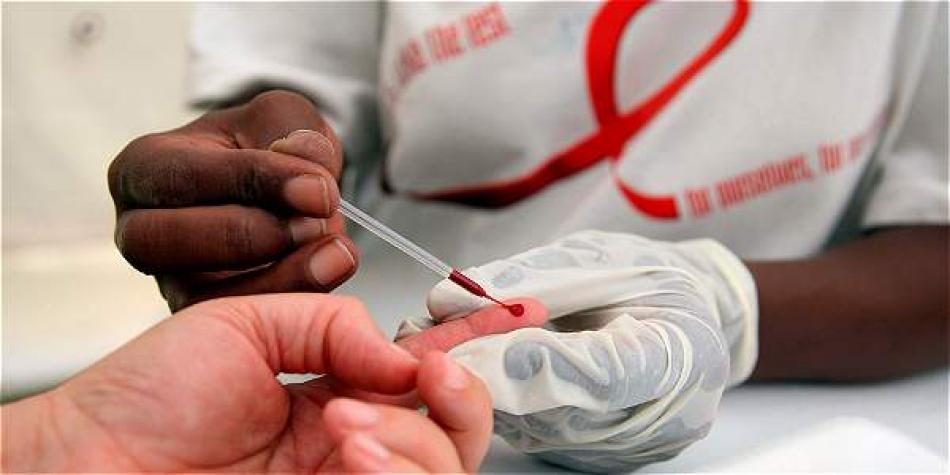
Court strikes down article criminalising the spread of HIV
Corte tumba artículo que penalizaba la propagación del VIH
Entre las razones, el alto tribunal dijo que la norma “estigmatizaba” a una población.
Tres razones llevaron este miércoles a la Corte Constitucional a tumbar el artículo 411 de la ley 599 del 2000 que penalizaba la propagación del Virus de Inmunodeficiencia Adquirida, VIH, origen al sida, y la Hepatitis B.
Una primera razón es que esta norma no era una medida necesaria y proporcional. La segunda, estigmatizaba a una población. Y la tercera es que hay otra norma en el Código Penal que tipifica ya la propagación de epidemias.
La decisión de la Corte acoge varios argumentos del demandante. Según este, la norma vulneraba los derechos a la igualdad y restringía el libre desarrollo de la personalidad, en particular, la libertad sexual.
La norma establecía que habría prisión de 6 a 12 años para quien, sabiéndose portador del VIH o enfermo de hepatitis B, “realice prácticas mediante las cuales puedan contaminar a otra persona, o done sangre, semen, órganos o en general componentes anatómicos”.
De acuerdo con la demanda, esto penalizaba el hecho de que una persona que viviera con estas enfermedades tuviera sexo, y lo convertía en delito sin importar si se esa persona tomaba las medidas preventivas que hacen improbable la transmisión de enfermedades, como tratamientos antirretrovirales y otros.
El demandante sostenía que, aunque el fin de esta medida era proteger la salud pública, esto no justificaba prohibirle a un grupo poblacional expresar libremente su sexualidad, y resaltaba que no habría afectación cuando se tuvieran relaciones consensuadas en las que se tomaran medidas para prevenir contagios.
Sobre la vulneración a la igualdad, la demanda sostenía que el artículo solo se refería y penalizaba a personas con VIH o hepatitis B, y no a otras con enfermedades también potencialmente contagiosas y delicadas.
Otras voces
Como parte del debate sobre esta norma, la Corte recibió 15 conceptos de diferentes organizaciones, ministerios, universidades, e incluso de la Corte Constitucional de Sudáfrica- en contra-, para alimentar sus consideraciones. Y hubo casi tantos argumentos a favor como en contra.
La Liga Colombiana de Lucha contra el Sida apoyó la demanda pues consideró que con la norma sí se vulneraban los derechos, agregó que leyes que penalizan la exposición al VIH dejan toda la carga de la prevención a las personas que viven con él y dijo que los verdaderos desafíos son más educación y mejor acceso a servicios de pruebas médicas y consejería.
El concepto enviado por el Ministerio de Justicia le dio la razón al demandante en que la norma es discriminatoria pues estaba dirigida únicamente a personas con VIH –que además han sido reconocidas como sujetos de especial protección constitucional– o hepatitis B. También argumentó que no se advertía justificación para que la norma fuera para personas con esas dos enfermedades y no para otras que conscientes de tener enfermedades infectocontagiosas riesgosas distintas.
Sin embargo, frente a la restricción a la libertad sexual, la cartera de Justicia consideró: la norma “no vulnera el derecho al libre desarrollo de la personalidad, sino que se limita a establecer las consecuencias penales que acarrea su ejercicio abusivo y lesivo frente a los derechos de las demás personas y la comunidad”.
El Ministerio de Salud indicó, al contrario, que la norma demandada no vulneraba ni el derecho a la igualdad ni el libre desarrollo de la personalidad y pidió dejarla como estaba.
La Procuraduría coincidió con el demandante en que la norma castigaba el hecho de tener sexo aun cuando no exista transmisión de la enfermedad, lo cual, dice el Ministerio Público, no es cierto. Para la Procuraduría, la norma era clara en que para que se configurara el delito debía existir una intención de causar daño realizando prácticas que podían terminar en contagio. El Ministerio Público pidió a la Corte declararse inhibida.








